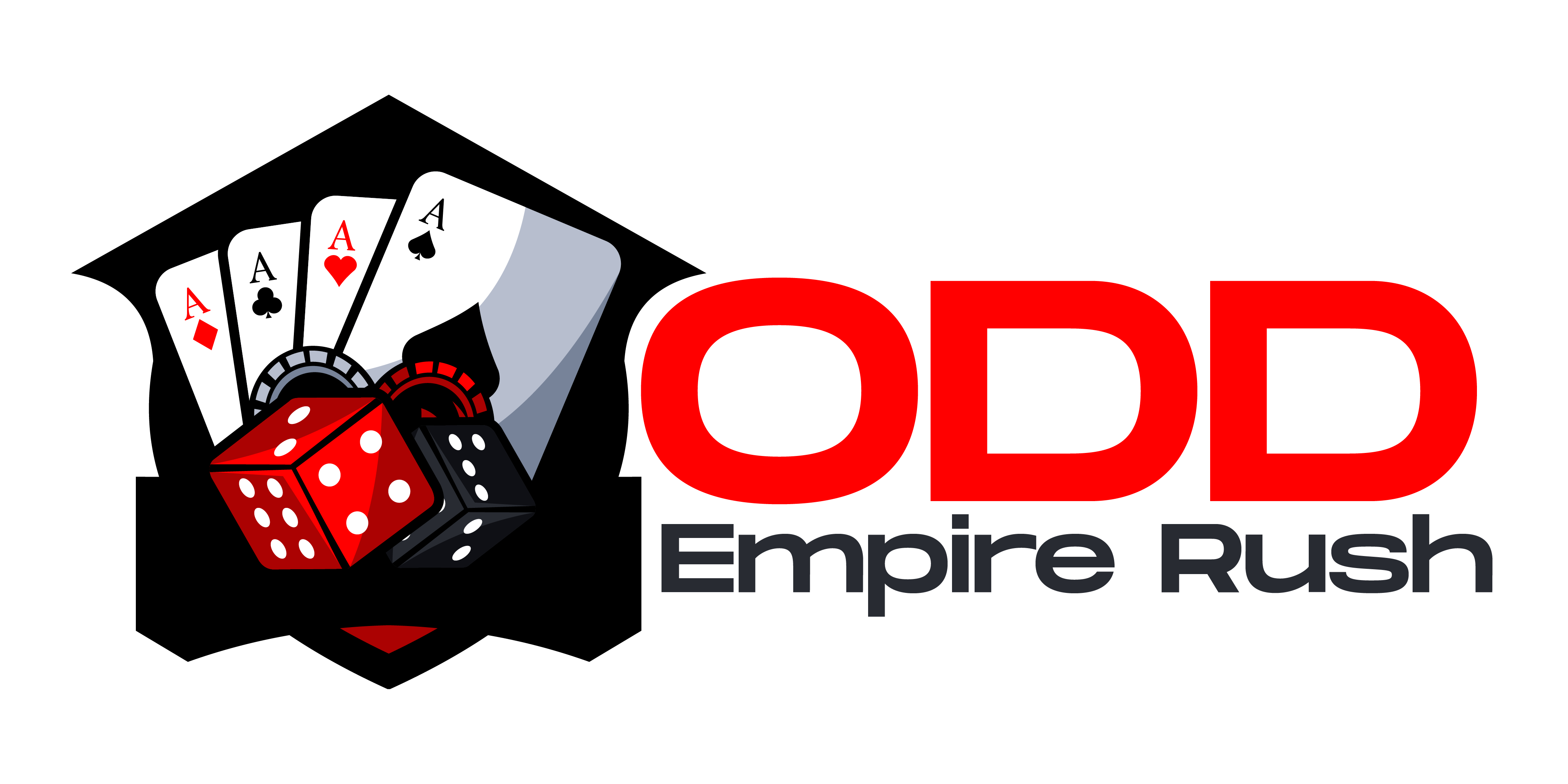The Basics: What Are Betting Platforms?
Betting platforms are digital services—websites or apps—that let users place bets on sports, casino games, eSports, and more. They handle everything from odds calculation to payouts, all within a single, accessible interface. Unlike old-school bookmakers, these platforms don’t require a trip to a physical shop or interaction with a cashier. You just log in, pick your bet, and go.
The major difference from traditional bookmakers comes down to scale and speed. Online platforms operate 24/7, offering a wider variety of bets across multiple markets—sometimes thousands at once. You can toggle between live football odds, spin a roulette wheel, or place a bet on the next eSports showdown, all from the same dashboard. Payouts are quick, often instant, and the whole experience runs in real time.
Why should beginners care? Simple: betting platforms strip away barriers. You don’t need insider knowledge or insider access. The interfaces are built to guide newcomers, and you can start with small bets, track your results, and learn as you go. Plus, features like live stats, tutorial prompts, and demo modes make it easy to get your footing fast. Accessibility, variety, and speed—the digital world makes betting far more approachable than it used to be.
Key Features to Look For
The difference between a decent betting platform and a frustrating one often comes down to four things: usability, speed, information, and support. If you’re new, this is where your focus should be.
First, a clean, intuitive interface matters more than you think. You don’t want to wrestle with confusing menus or cluttered layouts when you’re trying to place a bet before the odds shift. Look for platforms where navigation feels natural—search, select, bet, done.
Next: secure payments and fast withdrawals. Depositing should be quick, but more importantly, cashing out should not feel like pulling teeth. Reliable platforms process withdrawals faster and without hidden friction. If a site makes this part complicated, think twice.
Real-time odds are another must. Odds should update smoothly, without delays or crashes—especially during live play. Stale or laggy data can mess with your strategy, or worse, your wallet.
Finally, customer support that actually solves problems is rare—but essential. Whether it’s a technical glitch or a payout question, you want fast, human help. A platform with 24/7 chat or clear escalation paths beats one with endless email loops and canned replies.
Think of these features as your baseline. Flashy deals and promos mean nothing if the core experience forces you to fight the system.
Types of Betting Markets Available
Betting platforms today offer much more than just traditional sports wagering. From casino classics to cutting-edge esports, there’s a market for every interest. Here’s a closer look at the most common categories:
Sports Betting: The Foundation of Online Wagering
Sports remain the most recognizable and widely used form of betting.
- Popular Sports: Football (soccer), basketball, tennis, cricket, horse racing, and American football dominate the market.
- Emerging Sports: MMA, golf, and cycling are gaining traction.
- Specialty Bets: Some platforms offer wagers on player stats, number of corners, or even referee decisions.
Casino Games: Digital Versions of the Real Thing
If traditional sports aren’t your thing, digital casinos can be just as exciting.
- Slots: Quick play, high variance games with colorful visuals and themes.
- Table Games: Online poker, roulette, blackjack, and baccarat.
- Live Dealer Games: Real-time streamed casino tables with human dealers for a more immersive experience.
Esports and Niche Markets
The betting landscape is expanding rapidly into new territories that appeal to younger audiences and tech-savvy users.
- Esports: Games like League of Legends, Dota 2, Counter-Strike: GO, and Valorant have strong betting markets.
- Virtual Sports: Computer-generated games that use algorithm-based outcomes.
- Niche Categories: Politics, entertainment (like awards shows), and even weather predictions on some platforms.
Live Betting vs. Pre-Match Betting
Understanding the timing of your bets is crucial to strategy and pace.
- Pre-Match Betting: Ideal for bettors who want to research before wagering. Lines are typically more stable.
- Live (In-Play) Betting: Allows users to place wagers during the event, reacting in real-time to game developments. Great for dynamic, fast-paced bettors—but riskier due to market volatility.
When exploring betting markets, diversity is a sign of a strong platform. Not only does it provide more opportunities, but it also caters to different bettor profiles, whether you prefer slow strategy or rapid-fire wagering.
Understanding Odds and How They Work
Odds aren’t just numbers—they’re the house’s way of showing what they believe your chances are, and how much they’ll pay you if you win. There are three common formats: decimal, fractional, and moneyline. You’ve probably seen all three at some point, depending on where you’re betting.
Decimal odds are the most straightforward. Something listed at 2.50 means you’ll get 2.5 times your stake back if you win (including your original bet). So, bet $10 and you’ll get $25 total. Fractional odds—like 5/1—are more traditional in the UK. They show how much you’ll win relative to your stake. In this case, for every $1 you bet, you gain $5 profit. Last, moneyline odds are popular in the U.S. Positive numbers (like +200) tell you the profit on a $100 bet. Negative numbers (like -150) indicate how much you need to wager to win $100.
But beyond the math, odds signify probability. The shorter the odds, the more likely the sportsbook thinks that outcome is. Odds of 1.50 (decimal) suggest a high chance. Odds of 4.50? Less likely, but higher payout. That’s the trade-off: probability vs. profit potential.
In short, if you don’t understand odds, you’re guessing. And guessing gets expensive fast. Learn how each format works—and what it really tells you—before placing a bet.
(Want to go deeper? Check out Understanding Different Bet Types and How They Work)
Common Bet Types Explained
Win/Loss (Moneyline) This is the simplest bet type and the easiest for beginners to grasp. You’re betting on who wins. No spread, no totals—just pick a side. If your choice wins, you cash in. Underdogs pay more, favorites pay less. Straightforward, but don’t let that fool you—sharp bettors still find value here by analyzing odds shifts and matchup dynamics.
Over/Under (Totals) Here, you’re betting on the combined score of both teams. The sportsbook sets a number, and you choose whether the final total will be over or under it. Doesn’t matter who wins the game. Great if you know the teams’ scoring tendencies but don’t want to guess the winner.
Point Spread This one levels the playing field. If a team is favored to win by 7 points, they have to win by more than that for you to win the bet. The underdog can lose by less than the spread (or win outright), and you’d still cash. It adds nuance—and good old-fashioned stress—to who you root for during the game:
- Favorites must cover the spread.
- Underdogs can lose close and still win you money.
Parlays, Accumulators, and System Bets: Risk vs. Reward Parlays stack multiple bets into one. All legs must hit for you to win—and the more legs you stack, the higher the payout (and risk). Accumulators are the Euro version of parlays. System bets give you a little wiggle room—you can still win partial payouts even if some legs lose. They’re essential for gamblers who chase big returns but want a net to break the fall.
Bottom line: advanced bets like parlays sound sweet when you’re dreaming big, but they demand discipline and serious analysis. Stick with singles until you understand the math—and your own risk tolerance.
Regulations and Licensing: Play It Safe
Before you place a single bet, check if the platform is licensed. It’s not enough to see a logo at the bottom of a site. Scroll down, click on the seal, and verify it links back to the official licensing body. A legit license means the operator follows specific rules designed to protect users—your money, your data, your right to fair play.
Jurisdiction matters. A license from the UK Gambling Commission (UKGC), the Malta Gaming Authority (MGA), or other reputable agencies means the platform is held to real standards. These regulators enforce things like secure payments, responsible gambling tools, and dispute resolution. Avoid licenses from obscure territories with no teeth—they’re often a smokescreen.
Red flags? Look out for terms written to confuse, not clarify. Withdrawal limits buried in footnotes. Vague rules about bonus funds. If a site is dodgy about how or when they’ll pay out your winnings, that’s not a platform—it’s a trap.
Take the time to double-check before you deposit. It’s basic, but it’s how you avoid the worst mistakes.
Mobile vs. Desktop Experience
When it comes to betting, convenience can be the deciding factor between cashing in and missing out. Apps are the go-to for many bettors who want speed, simplified interfaces, and quick access. Good betting apps run smooth, load fast, and keep key markets one tap away. But not every operator nails it. Some apps feel rushed—cramped menus, laggy updates, or just plain clunky design. If an app slows you down, it’s no better than a busted tipster.
That’s where browser-based use still holds ground. Betting from your desktop gives you a broader view, especially helpful for scanning odds across multiple games. It’s ideal for strategic players who need more screen real estate and fewer distractions. Browsers also tend to offer full functionality, while some apps limit features to streamline performance.
Then there’s the wildcard: push notifications. These can be valuable—alerts on odds shifts, bet settlements, or flash promos—but when overdone, they’re just noise. Look for apps that let you customize what you get pinged about. Betting should feel focused, not frenzied.
On the go, what matters most? Fast login, live odds updates without crashing, easy navigation to your favorite bets, and rock-solid security. If an app can’t nail that, it’s not worth your money—or your time.
Bonuses and Promotions: Read the Fine Print
Enticing offers are often the first thing you’ll notice when signing up for a betting platform. But not all promotions are created equal. Understanding the difference between types of bonuses—and how to spot the catches—can save you money and frustration.
Welcome Bonuses vs. Loyalty Rewards
Betting platforms typically offer two main types of promotions:
- Welcome Bonuses: These are designed to attract new users. Common formats include matched deposits (e.g., “Deposit $100, get $100”), free bets, or risk-free bets.
- Loyalty Rewards: Long-term users can benefit from bonuses based on ongoing activity. These might include cashback offers, weekly free bets, or entry into exclusive promotions or VIP programs.
Tip: Read the terms carefully before claiming any bonus. Some look generous at first glance but come with hidden conditions.
Common Bonus Traps and How to Avoid Them
Not all bonuses are as risk-free as they seem. Be aware of these common pitfalls:
- Time Limits: Most bonuses must be used within a set timeframe—miss the deadline and you lose the perks.
- Minimum Odds Requirements: You may be required to bet on games with specific (often unfavorable) odds.
- Withdrawal Restrictions: Some bonuses prevent you from withdrawing winnings until certain conditions are met.
- One Bonus at a Time: You usually can’t stack multiple promotions, which can limit your flexibility.
How to Avoid Traps:
- Always read the full terms and conditions
- Look for user reviews and platform ratings
- Start small to test how a bonus behaves in practice
Rollover Requirements Explained in Plain Terms
Rollover (or wagering) requirements determine how many times you must wager a bonus (and sometimes your deposit) before you can withdraw winnings.
Example: A $100 bonus with a 5x rollover means you have to place $500 worth of bets before you can cash out any winnings from the bonus.
Know What to Ask:
- What’s the rollover multiplier? (e.g., 3x, 5x, 10x…)
- Does it apply to just the bonus, or the deposit too?
- What bets count toward the rollover (e.g., minimum odds, bet types)?
Bottom Line: A bonus isn’t free money until you meet the platform’s conditions. If the terms feel overly complex or restrictive, the bonus may not be worth it.
Understanding the fine print helps you make smarter betting decisions from the start.
Managing Your Bankroll
Getting into betting without a bankroll strategy is a fast track to losses and frustration. The first rule? Set limits. Don’t throw your whole deposit on one game, no matter how sure you feel. Discipline beats gut feelings every single time. Create a budget you’re comfortable losing and stick to it. Spread your bets. Think of it like managing risk, not chasing wins.
Next, track your wins and losses. Yes—actually write them down. Use a spreadsheet, an app, a notebook, whatever works. The goal isn’t just to pat yourself on the back after a good streak. It’s about spotting patterns, figuring out when you bet smart, and knowing when you’re just gambling out of boredom or emotion.
For new bettors, start small and be methodical with deposits. Avoid dumping a big sum onto a platform on day one. Test it. Deposit just enough to place a few bets, track how the platform performs—speed, odds updates, payout timing—and deposit again only when it earns your trust. Managing the bankroll isn’t about cutting the fun; it’s about extending it.
Final Thoughts: Choosing the Right Platform
Choosing a betting platform isn’t just about flashiest design or biggest bonus. It’s about finding the right fit for your goals—and making smart choices even as you learn the ropes.
Match the Platform to Your Goals
Before diving in, ask yourself: Are you betting for fun, or looking to build a long-term edge? Different goals call for different platforms.
- Casual users may prefer platforms with simpler interfaces, plenty of small-stakes options, and fun promotional games.
- Strategic bettors should prioritize platforms with deep market coverage, competitive odds, and solid data tools.
Start Slow, Learn Fast
Jumping in headfirst can get expensive—fast. Instead, take time to understand how your chosen platform works.
- Begin with small, low-risk bets to get a feel for the system
- Study betting markets, odds movement, and user reviews
Stick to Trusted, User-Rated Options
Reputation matters. Especially for beginners, using a poorly rated or shady platform can lead to frustration—or worse, lost funds.
- Look for high user ratings and verified reviews
- Make sure the platform has responsive customer service
- Avoid platforms with withdrawal hoops and hidden fees
Keep Learning and Adapting
Betting isn’t static. Markets evolve, odds shift, and platform features change. The most successful bettors are open to adapting.
- Read expert insights, review betting blogs, and stay updated with industry changes
- Reevaluate your strategy and platform regularly
- Treat each loss or win as a learning opportunity
Remember: The right betting platform should support your learning curve, not fight against it. Whether you’re in it for fun or more serious play, your success starts with informed decisions.


 Lillian Wagneroler, an insightful author at oddsempirerush focuses on in-depth research and engaging storytelling. Her articles provide fresh perspectives on betting trends, helping readers connect with the latest developments in the industry.
Lillian Wagneroler, an insightful author at oddsempirerush focuses on in-depth research and engaging storytelling. Her articles provide fresh perspectives on betting trends, helping readers connect with the latest developments in the industry.

